Arline Morris’ teeth are failing fast. She can’t eat much, and struggles daily with constant pain while taking medication that makes her teeth even more fragile.
She’s been offered appointments at Omaha and Lincoln dental clinics that will accept her Medicaid insurance. But Arline lives in Stratton, in southwest Nebraska – more than 200 miles from the nearest dentist who will take her.
It’s an eight hour round trip, plus hours of dental work, and that’s all but impossible for Arline. A long car ride can leave her suffering in bed for days. Medicaid doesn’t cover an overnight stay for traveling patients.
John Morris, Arline’s husband and sole caretaker, spends his days calling around for help, working around the spotty cell phone signal at their home. He’s talked to more than 50 dentists’ offices, with no luck.
“Either you hurt with your teeth, or you hurt for several days in your bed and you can’t move or eat,” John Morris said.
Each year, fewer dentists can afford to treat Nebraska’s Medicaid patients. In the past five years, the total number of dental providers reimbursed after treating at least one Medicaid-eligible patient dropped by 37%.
The problem is especially pronounced in western Nebraska. Only two dozen dentists west of Kearney have been paid for treating a Medicaid patient this year.
Forty-three Nebraska counties, many in the state’s western half, have zero dentists helping low-income Nebraskans like Arline Morris.
John Morris says he’s been searching for about a year and a half for a provider who will treat Arline near home.
Within a 90-mile radius of the Morrises, only three dentists’ offices are listed as accepting new Medicaid patients. One is a pediatric practice. The other two are separate small offices for one dentist.
Arline needs all her teeth extracted and dentures fitted, major work that her last dentist couldn’t perform out of her satellite office in Paxton.
That dentist has since stopped taking new Medicaid patients, John Morris said, because the office was “overwhelmed” with a waitlist stretching past 100 patients.
Then, on Aug. 1, the Paxton office closed, leaving the Medicaid patients of western Nebraska with one fewer option.
***
In 2017, nearly 600 dental providers treated at least one Nebraska Medicaid patient, according to reimbursement records from Nebraska’s Department of Health and Human Services.
By 2022, that number had fallen to 378.
Why? Because it doesn’t pay.
State government reimbursements for this dental work have fallen “far below market levels,” said Dr. Jessica Meeske of Hastings. They fail to cover the overhead costs of most procedures, leading to what Meeske calls a “crisis level” with large numbers of patients unable to get care.
Meeske, a pediatric dentist at Pediatric Dental Specialists of Greater Nebraska, said her clinic turns away 15 families a day because they are “overloaded and booked out.”
There’s a practice in North Platte, Meeske said, but it’s also impossible for the pediatric dentists there to meet the community’s needs.
“We’re hearing multiple reports that patient families from western Nebraska are having to go all the way to Lincoln for dental care,” Meeske said.
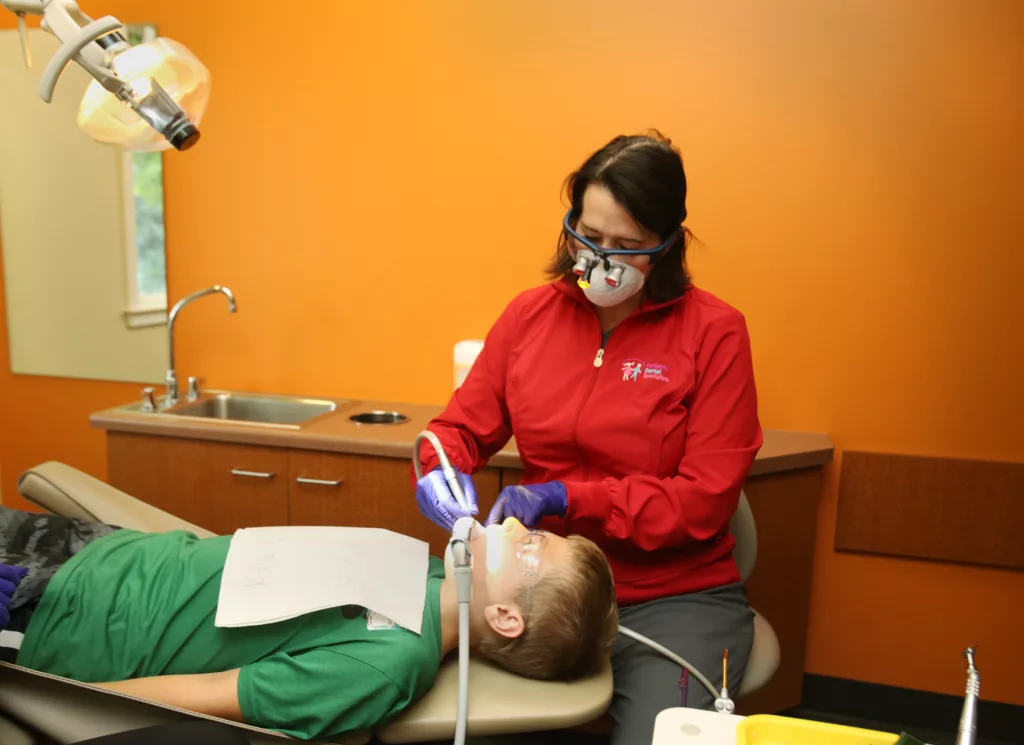
The urgent calls, five or six per day, come to Kim Danehey-Nibbe at Central Community College’s dental hygiene program. Medicaid patients are on the line, often in serious pain.
Central Community College is one of only three providers listed as accepting new Medicaid patients in Hastings.
“A lot of the comments I’ll get is, you’re probably the 40th place I’ve called, and nobody’s taking,” said Danehey-Nibbe, the college’s clinic assistant.
***
Nebraska’s Medicaid reimbursement fees are far below the rates of private insurance and lower than most surrounding states’ Medicaid programs.
The state’s Medicaid program picked up the tab for 39% of the cost of dental procedures on average, according to Nebraska Dental Association estimates from its 2021 survey.
A combination of factors including rising labor and supply costs and an influx of patients due to Medicaid expansion have made it tougher for dentists to manage the financial losses, Meeske said.
“Grocery stores don’t sell food for 40% of their price to SNAP customers. Why is health care partially financed by the professionals providing the service?” said David O’Doherty, executive director of the Nebraska Dental Association, in an email.
The relative value of Medicaid services are assessed every year by the federal Center for Medicare and Medicaid Services. Then, Nebraska’s Medicaid program, run by DHHS, sets its rates to fit the assessment and budget allocated by the Nebraska Legislature.
“As a public service, funded by the state, those rates are limited by the appropriation from the legislature,” said Collin Spilinek, a DHHS spokesperson, in a statement. “As a result, there is only so much that Medicaid can do to address this concern directly.”
The Nebraska Legislature has made some attempts to improve the situation for dentists, and did boost all Medicaid reimbursement rates by 3% this year – though that increase was far below what dentists say they need. (Read more about state leaders trying, thus far unsuccessfully, to do more.)
Gov. Jim Pillen issued a line-item veto to the 2023-2025 budget, holding the rates stagnant for 2024.
Meanwhile, John Morris keeps an eye on local Facebook pages for posts about dentists. People are constantly asking if anyone knows of an office accepting new Medicaid patients near North Platte or McCook. There are rarely answers.
“People can’t stay in business if they’re losing money every time they make a transaction,” Morris said.
***
Alison McAleese-Reents went to sleep on Dec. 23, 2020, with her jaw hurting. By morning, the side of her face had swelled like a balloon.
She went to Hastings Convenient Care first. The nurse sent her straight to the hospital.
“My friend sent me in with her phone number pinned to my shirt because I was pretty out of it,” McAleese-Reents said. “I didn’t realize how bad it was.”
She was immediately wheeled into emergency surgery at Hastings’ Mary Lanning hospital. An infection had spread from one bad tooth into her jaw bone. Her surgeon decided to remove all 32 teeth.
When she woke up on Christmas Eve, her mouth was empty, and her life permanently changed.
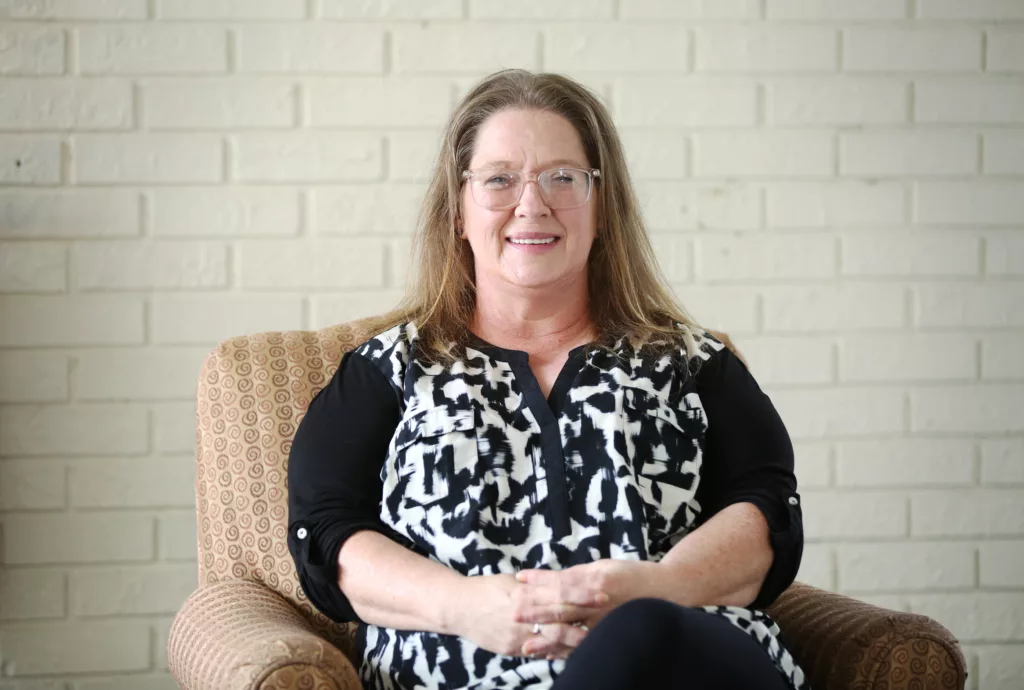
“I can’t even tell you what that was like to wake up to,” McAleese-Reents said. “Because you’re groggy and I was like, ‘what’s going on?’ And then I start feeling around my mouth like ‘whoa, whoa, what’s this about?’ I thought they got the wrong patient at first.”
McAleese-Reents has long lacked adequate dental care, she said, because options for Medicaid patients are limited near Hastings. Before she qualified for Medicaid, McAleese-Reents was self-employed and couldn’t afford dental insurance.
“You can’t afford to go, and then when you qualify for Medicaid, there’s nowhere to go,” she said.
Patients who can’t get regular dental care often rush to emergency rooms when their pain becomes severe. Some 79% of those visits would be more appropriately treated in an outpatient office, said Kelsey Arends, a health care access attorney for Nebraska Appleseed.
Preventative, consistent dental care costs far less than ER treatment, Arends said – making it less burdensome on Medicaid and American taxpayers. In-office care has other benefits, she said. There are fewer invasive oral surgeries. Fewer Nebraskans get prescribed opioids.
***
When McAleese-Reents awoke with no teeth on Christmas Eve, she immediately worried about what would come next.
“How am I going to pay for dentures?” McAleese-Reents said.
Nebraska’s Medicaid adult dental benefits are capped at $750 per year. She worried that she wouldn’t have anything left for other dental care, including dentures.
McAleese-Reents was lucky, though. Her care team at Mary Lanning Memorial Hospital contacted Smile Dental Group, who donated high-quality dentures and fitting appointments, she said.
“The dentures usually for Medicaid are cheaper and they’re very thick,” McAleese-Reents said. “When I look at mine, I’m just blown away.”
***
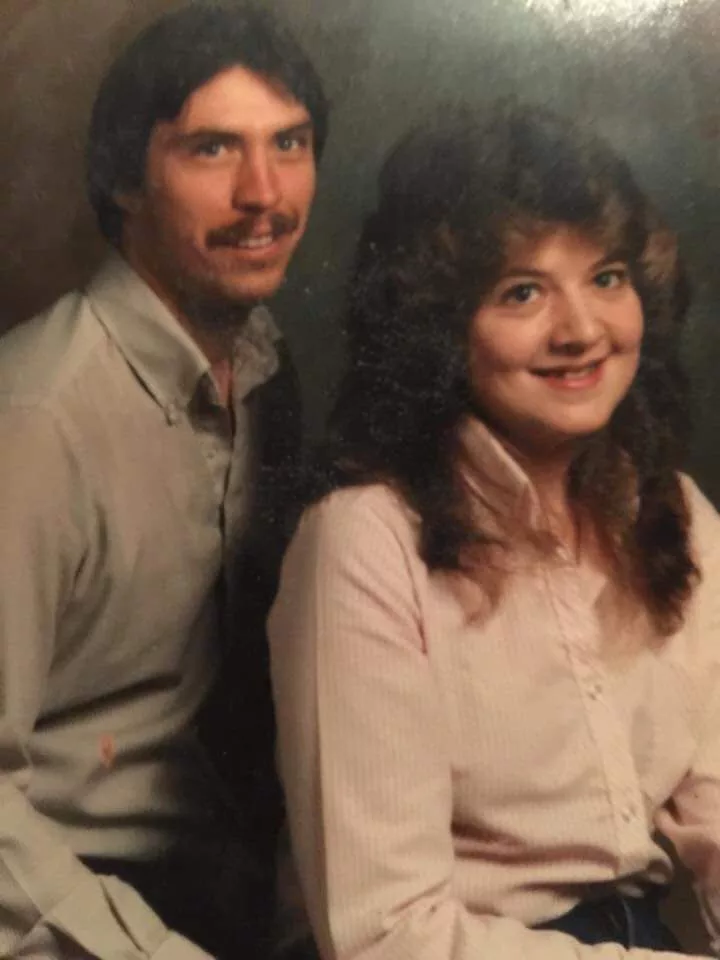
In January, the annual $750 benefits cap will be removed, alongside other changes to the structure of Medicaid’s dental coverage.
“We feel that this change will allow our members to receive needed care in a timely fashion and will allow appropriate compensation to the dentists with a reduced administrative burden,” Spilinek said in an email.
Nebraska Medicaid is also changing reimbursements for dentures and wisdom teeth extraction to pay dentists for each step of treatment. Providers are optimistic that the changes will help more Nebraskans get dental care.
“I think it will open up a lot of doors to provide more consistent treatment,” Arends said. “Then it can get folks into a place where they’re in more maintenance instead of, you know, expensive, initial treatment.”
When open enrollment begins in November, patients will have a choice between three managed care organizations, with dental coverage integrated into the new plans.
This may help divert patients from emergency departments to community-based dentists or public health clinics – places more likely to address a dental issue’s root cause, Meeske said.
Patients want the new setup to make it easier to find dentists accepting new Medicaid patients. They are hoping it cuts down their pointless phone calls.
John Morris has a helpful conversation with a dentists’ receptionist every so often, and grows hopeful that he will find someone near Stratton to relieve Arline’s pain.
But that hope then runs headlong into reality. When he calls back, the person who picks up usually knows nothing about the previous conversation, and can’t help.
Starting over with each call is wearing on him, Morris said. Repeatedly asking for help is frustrating and embarrassing.
Recently Morris called DHHS while sitting with his wife in their home 200 miles from Lincoln. He said the employee who answered repeatedly yawned into the phone.
“Everybody wants to feel like they’re the only person that matters when somebody’s talking to them, but obviously that just isn’t possible,” Morris said. “It’s just hard. You don’t know where to turn, it’s hard to get answers.”

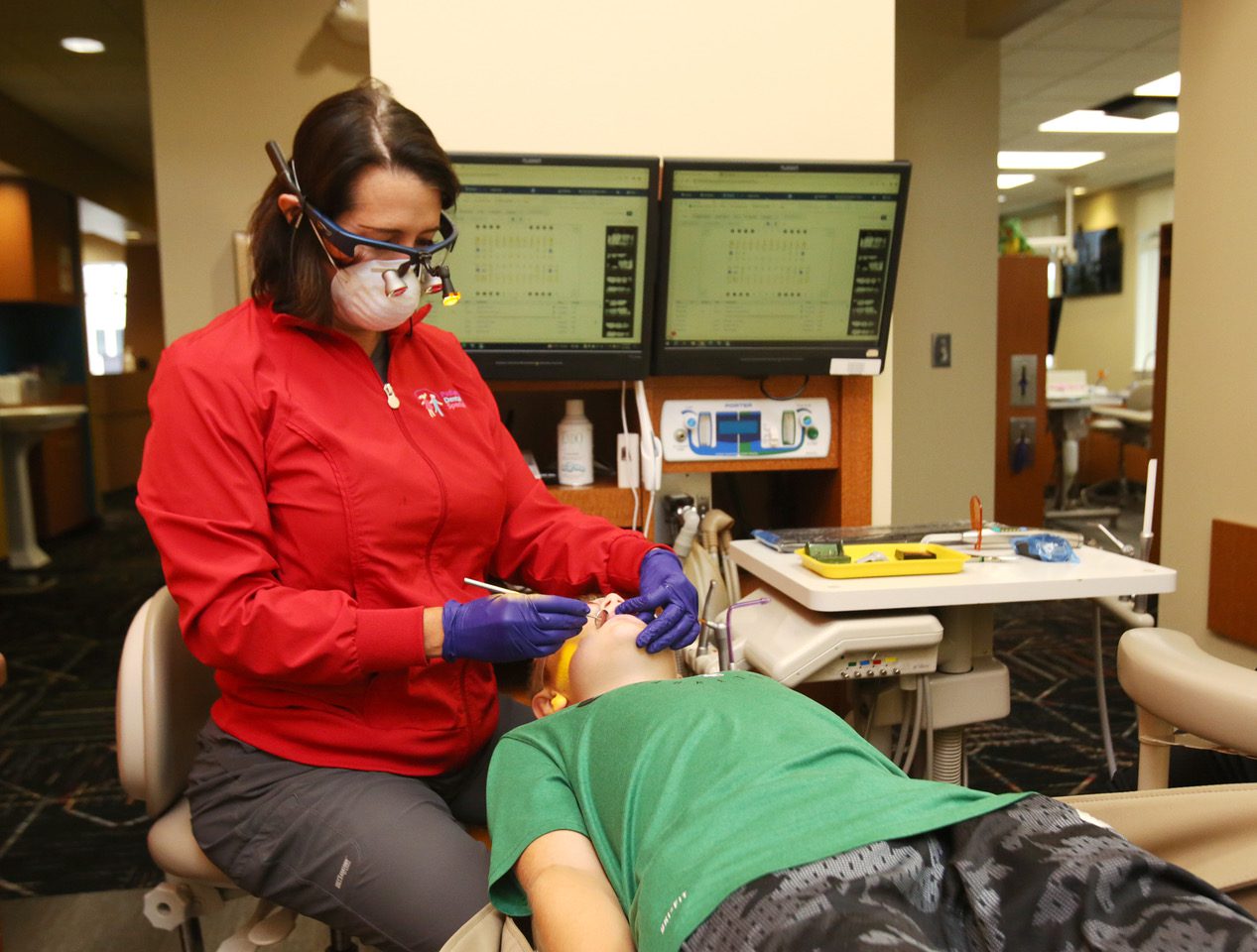
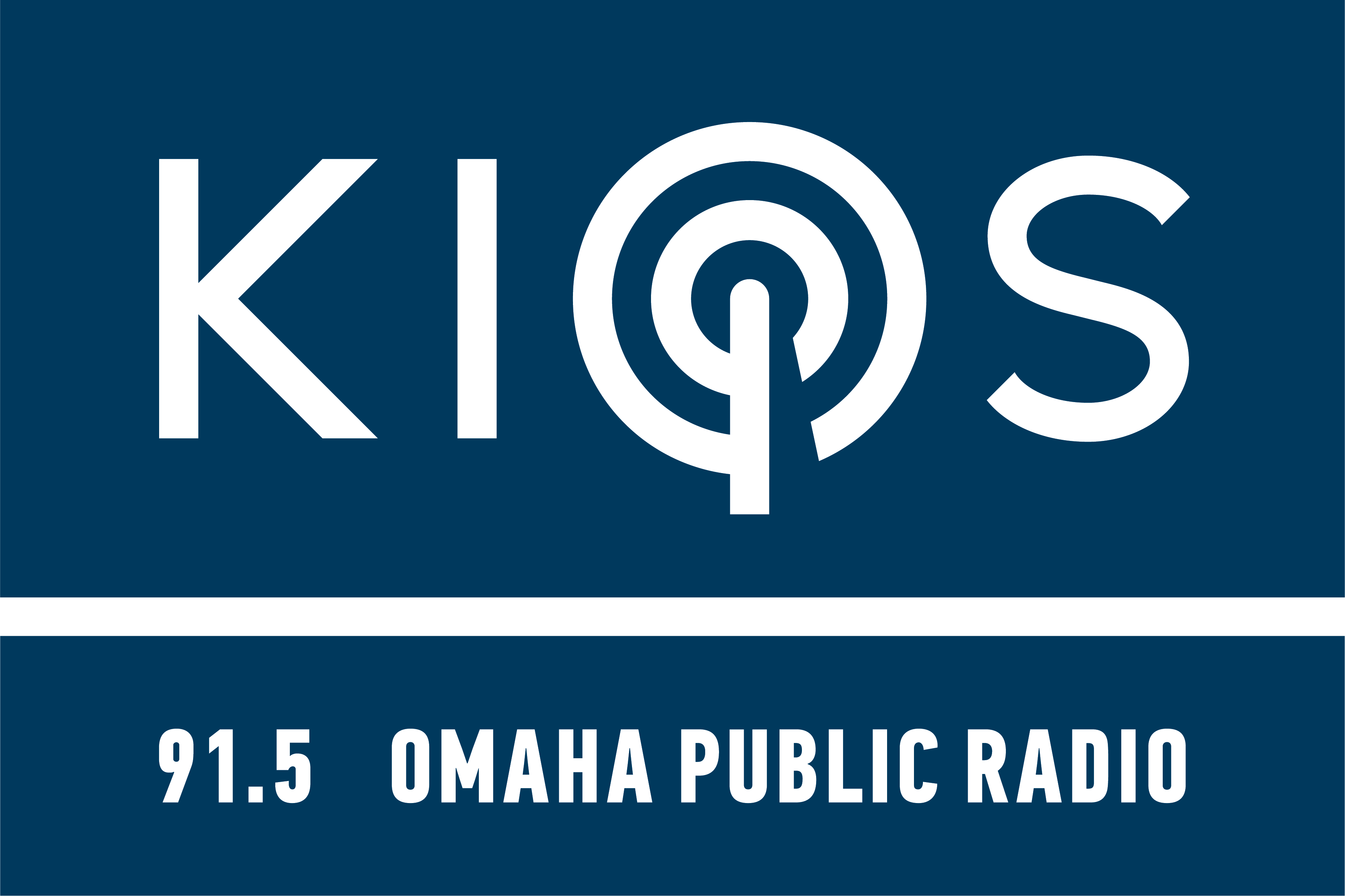

5 Comments
Nebraska’s health priorities are horribly out of whack. The state fusses over gender care of a relative few while ignoring the dental needs of many more of its citizens.
Life will always be difficult when you try to get everything free.
I’m a disabled senior on Medicaid that desperately needs new dentures for more than 4 years!! I live in North Platte, and can’t find any dentist who will accept a new Medicaid patient, period!! That’s not the only problem I’m faced with!! Not every dentist is qualified in fitting a patient with dentures!! I’ve had the misfortune of getting dentures from someone who didn’t know what he was doing at all!! And I ended up with paying for a set of dentures that were so big, no amount of adhesive would keep them in!! I couldn’t eat, just having them in was painful!! I couldn’t even talk without them coming loose!! After going through that, I was very careful where and who I went to!! I’ve been lucky with the last 3 dentist’s who made my dentures!! The last 2 were paid through Medicaid!! But now I am in desperate need of a new set!! I can barely keep them in and I have to use quite a bit of adhesive!! I very seldom wear them now not only because of the adhesive but it is painful!! I can’t eat with them!! If I wear them it’s usually just so I look normal!! I look horrible without them!! So now I’m stuck!! It’s caused not just physical problems, but even worse, emotional problems!!
I am a mental health provider and have long observed the phenomenon of the disappearing dentist. Last week a client told me that she had reached out to a Medicaid Dental provider and was told that they had a 18 mo waiting list.
Nebraska Dentist have decided to not take Medicaid patients for over 20 years. When a doctor accepts Medicaid, they are entering into a take-it-or-leave-it contract. One hour of a Medicaid reimbursed hour requires a sm business provider to draw from paying patients to cover OH costs. In other words, Dentist pay to see a Medicaid patient. Patients are often bliss to the fact that medical services aren’t free.
But reimbursement is only one reason Dentists do not accept Medicaid. The more prevalent reason was the harsh Medicaid audits of Dentist that always resulted in recoupment of payments for services. Not only were dentists working for free, they were subjected to the constant environment of fear and financial insult of audits that would take their income back.
Across the board, providers are choosing to not take Medicaid due to the poor treatment of providers by Nebraska Medicaid. Mental Health Providers are especially vulnerable to poor treatment, low reimbursement rates and many are opting out of taking Medicaid card holders.
Remember when charity was managed by people and not the government. It was long before my time, but any time government tries to take something away from we the people it almost always gets goofed up.